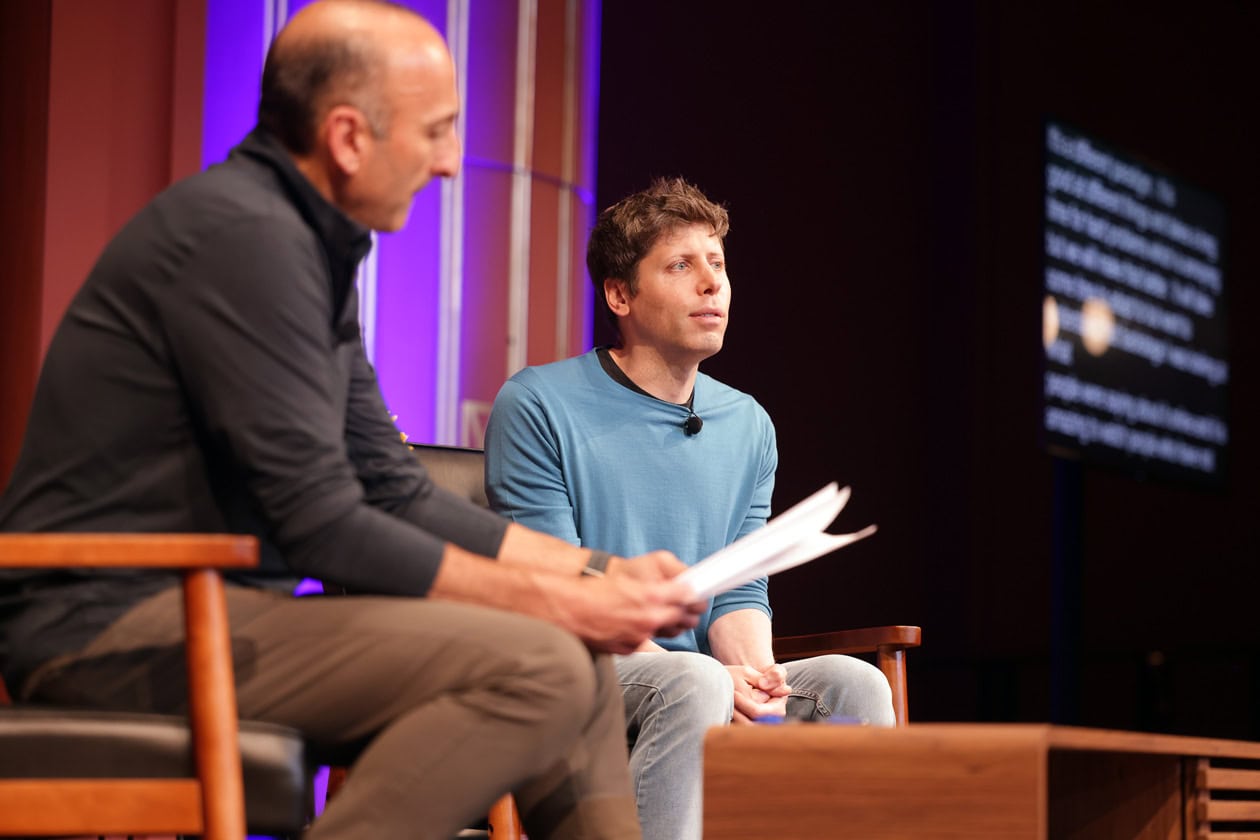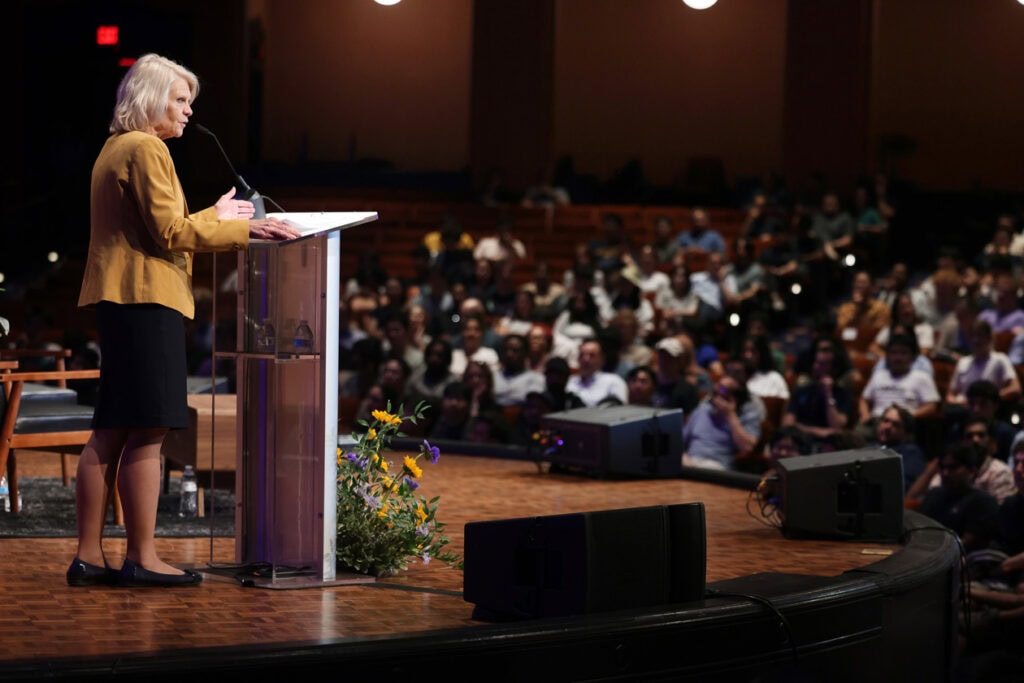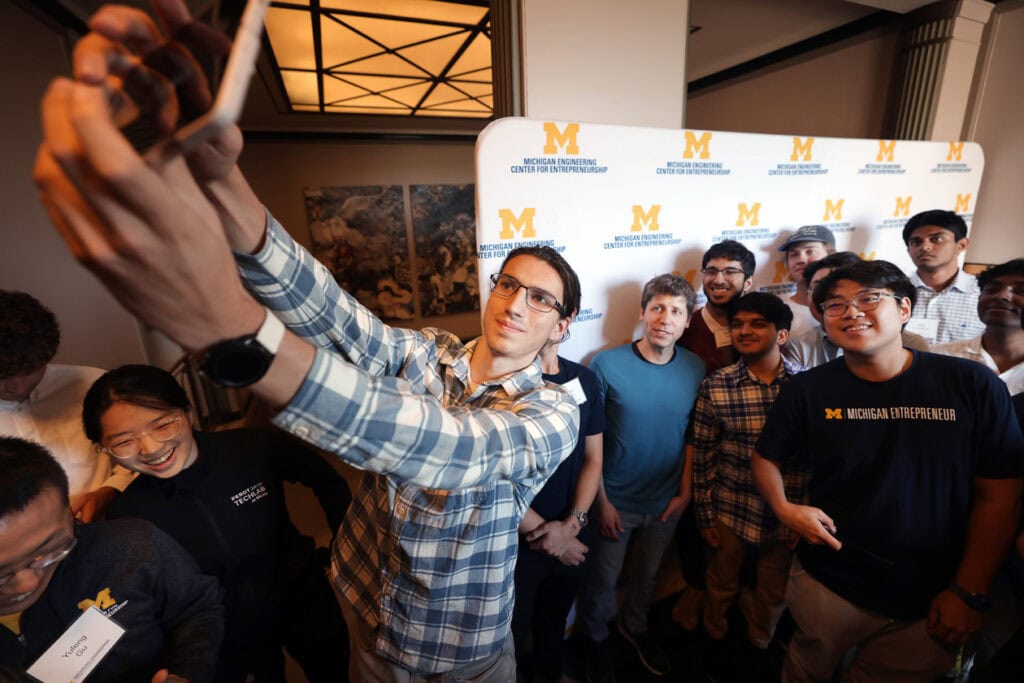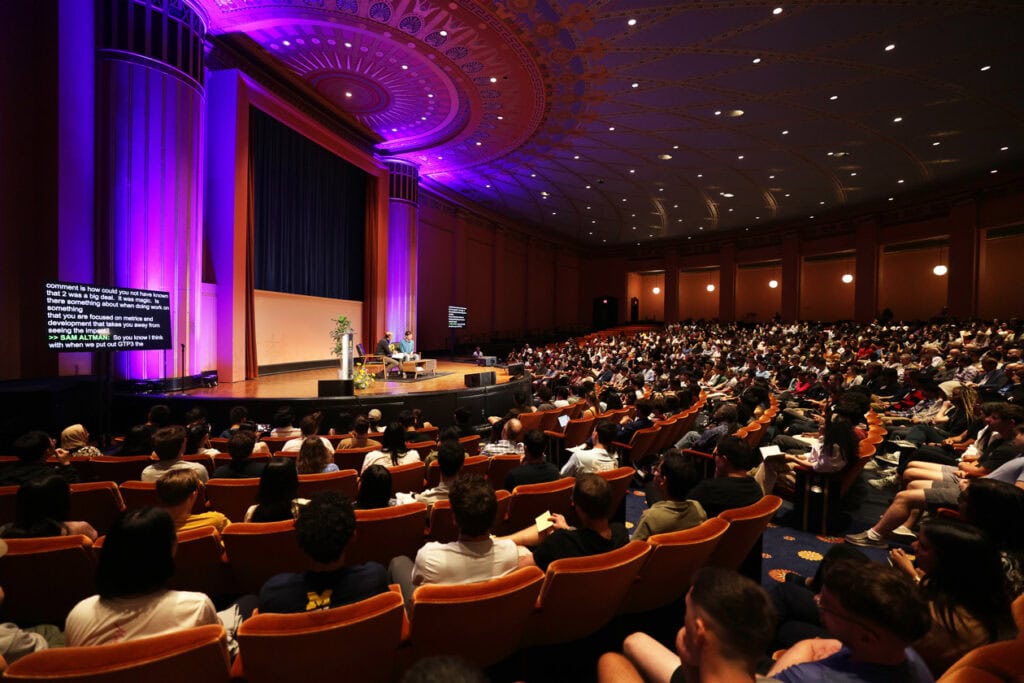
‘You all are going to create things that astonish us’
OpenAI CEO Sam Altman spoke to University of Michigan students about the future of AI and its implications for education and industry.

OpenAI CEO Sam Altman spoke to University of Michigan students about the future of AI and its implications for education and industry.
On the same day Chat GPT developer OpenAI released its new reasoning model, o1—nicknamed Strawberry—CEO Sam Altman participated in a fireside chat at the University of Michigan.
The visit, hosted by Michigan Engineering and moderated by Dan Feder, senior managing director of the U-M Investment Office, underscores the university’s leadership in the field. U-M was the first major university to develop its own custom AI tools and resources, released one year ago.
“Generative AI is transforming how we work, how we learn, how we teach,” said Karen A. Thole, the Robert J. Vlasic Dean of Engineering. “I’m thrilled to provide our students with this opportunity to have a really important discussion with a pioneer in the field.”

The Q&A session covered a wide range of topics, from the future of AI and its implications for education to the challenges and opportunities presented by rapid technological advancements. Altman shared insights into Strawberry, a model he describes as capable of complex reasoning and problem-solving.
“These paradigm shifts don’t come along that many times,” Altman said. “GPT4 was one and this is one. I think we are living through probably the most exciting piece of the technological revolution in human history.
“You all are going to create things that astonish us. The story of human history is that we build better tools, and then people do even more amazing stuff with them, and they themselves, you know, add their layer of scaffolding. And we’re on this steadily increasing curve of possibility.”

Students asked Altman a variety of questions, including on the ethical implications of AI and its potential impact on the job market.
Jack May, an MBA student in the Ross School of Business asked: “What ethical or regulatory dilemmas most trouble you personally in terms of AI, and which issues that seem to concern the media or general public do you believe are misconceptions?”
Altman said he’d love to stop seeing Terminator robots in news articles, and he said his ethical dilemma is related to the pace of innovation.
“I believe that society can adapt to almost any amount of change given a reasonable amount of time, but the tools that we and others are putting out into the world, if things keep going like we think they’re going to, will require society to adapt at a rate that is more challenging,” Altman said.
Julia Kassab, a senior at the School of Information, posed a question that seemed to resonate with many of the students in attendance. “Do you believe that current students of computer and information science should feel insecure about the profession that they’re entering in the sense that their current skill set that they’ve worked very hard for might become obsolete in the future?”

Altman’s reply generated nervous laughter from the audience.
“Sort of, but not really,” he responded. “I think there’ll be a ton of demand for that kind of a job, but it will be really different. I remember hearing stories about how when more advanced programming languages came out, all of the OG programmers at the time would be like, oh, there’s going to be no jobs left because this new thing is just too easy and everybody’s going to be doing it. And it didn’t quite happen. I don’t think it’ll quite happen this time either.”
He advised students to focus on developing skills like resilience, adaptability, and a quick-learning mindset.
“If you can do that—and that’s a place where young people have a natural advantage—it seems to me you’ll be in great shape. And if not, it will sort of be a bumpy ride.”
Nicole Casal Moore
Communications & Public Engagement Director